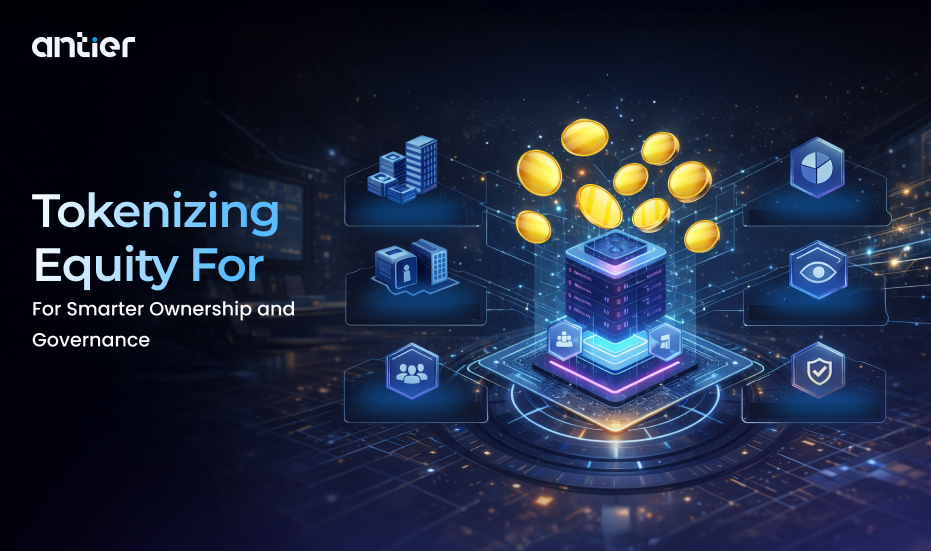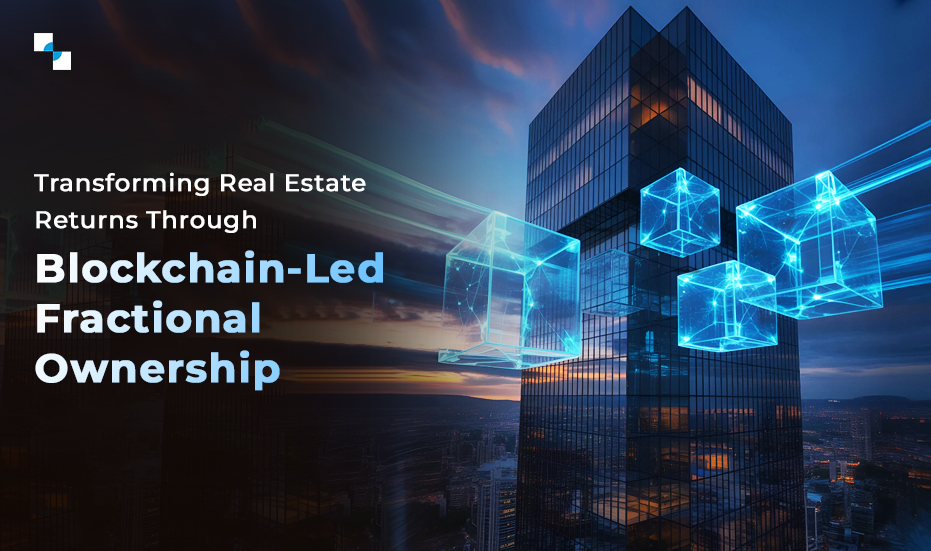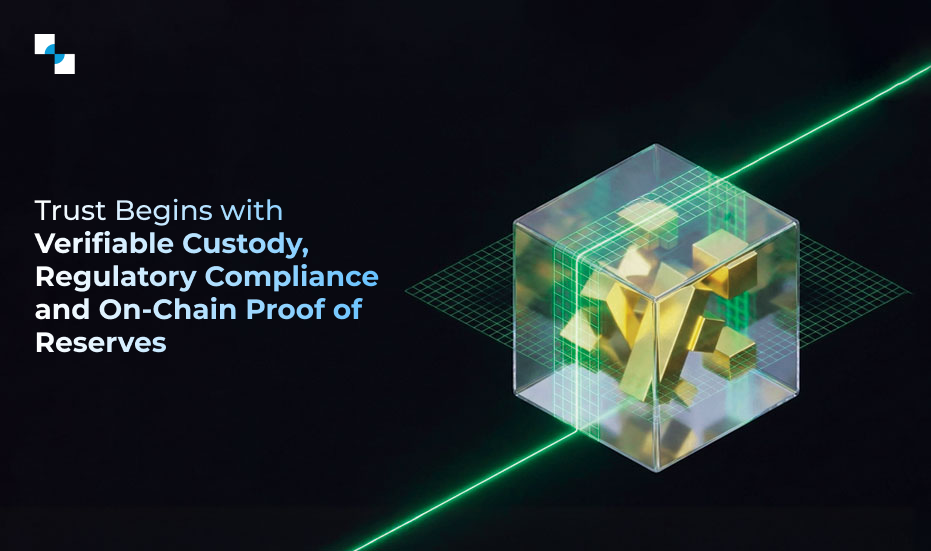The MENA region is becoming the epicenter of Real Estate Tokenization, with growing demand for platforms and a clear regulatory framework. Historically, property investment in the Middle East has often been hindered by hefty capital requirements, complex legalities, and geographical limitations. Now, tokenization is breaking barriers by converting high-value properties into tradable digital tokens. Investors don’t need millions to invest; they can start small with a minimal amount. This guide highlights how Real Estate Tokenization Platform Development is shaping the MENA region, benefiting property owners and investors.
Why Has There Been a Significant Rise in Real Estate Tokenization in the MENA Region?
Real Estate Tokenization in the MENA region is opening the doors for luxurious property investments that were once limited to elite property owners or investors. By enabling investors to grab opportunities starting with a mere $500, it removes the obstacles that often impact property dealings, making every transaction transparent. Strong legal frameworks ensure AML compliance and investor protection, making the MENA region a global leader in embracing property tokenization.
Tokenized Real Estate enables investments in fragments, introducing democratization and diversification. It eases the process of selling, purchasing, or trading property by converting it into digital tokens. Both the government and private sectors have recognized the benefits and are crafting an enabling environment with:
- Innovative Regulation: Dubai’s regulatory sandbox allows experimentation within clear, risk-mitigated frameworks.
- High-Value Assets: The region’s luxury developments attract tokenized offerings that appeal to international investors.
- Tech Embrace: Investment in blockchain R&D and fintech infrastructure is accelerating adoption.
This confluence places MENA in a unique position, ready to redefine how real estate is leveraged and traded worldwide.

Real-Estate Tokenization: Dubai’s Regulatory Advantage
For any tokenization platform to succeed, having a strong regulatory framework is essential. Dubai’s two leading initiatives—the Dubai Land Department’s Sandbox and the Virtual Assets Regulatory Authority (VARA)—are pioneering the success of estate tokenization in the MENA Region.
1. Dubai Land Department Sandbox
The sandbox enables Tokenized Real Estate platforms to operate under controlled oversight. It balances the need for innovation with investor protection through mandated protocols, including KYC (Know Your Customer) and AML (Anti-Money Laundering). This environment encourages platform builders to test and refine their technology with credible guidance.
2. Virtual Assets Regulatory Authority (VARA)
VARA issues licensing and compliance frameworks and enforces strict guidelines on Real Estate Tokenization Platform Development. Its rigorous requirements for custody, data security, and auditability ensure that platforms maintain integrity, reinforcing investor confidence.
The Role of Platform Architecture in Tokenization Success
The success of a Real Estate Tokenization Platform Development depends upon its technological architecture and ability to deliver a secure, user-friendly investor experience. Leading tokenization platforms like MANTRA or Prypco Mint have implemented strong blockchain protocols and integrated AI tools for streamlining investments for platform users.
Here is what platform builders need to consider while working on the development process:
- Blockchain Protocols: Implement all the essential blockchain protocols to ensure transparency, security, and immutability of transactions on the platform.
- Smart Contracts: Integrated Automated contracts to handle the issuance, transfer, and management of tokens. This helps to reduce the need for intermediaries and minimize operational risks.
- KYC/AML Integration: KYC/AML integration is crucial. With built-in compliance tools, platform owners can easily verify investor identities and monitor transactions. It also helps to ensure that investors adhere to regulatory standards.
- User Experience: For higher investor participation, having Intuitive interfaces and seamless onboarding processes is crucial. This makes the tokenization journey easier, especially for those who are new to digital assets.
Success Stories Driving Real Estate Tokenization Adoption
1. MAG Group’s $3 Billion Tokenization Deal
MAG Group, one of the largest property developers in the UAE, recently launched a $3 billion tokenization project. This platform enables investors to purchase fractional shares in premium real estate assets. For this initiative, MAG Group has partnered with leading blockchain firms and leveraged Dubai’s regulatory sandbox, ensuring legal compliance. The MAG’s Tokenization solution has set a new benchmark for large-scale tokenization in the region.
2. Damac and MANTRA: A $1 Billion Partnership
Damac Properties and MANTRA, in partnership, tokenize $1 billion worth of assets. This collaboration was done with a vision to enhance liquidity, attract international investors, and showcase the potential of blockchain-powered real estate platforms.
3. Prypco Mint and MultiBank.io
Prypco Mint and MultiBank.io are also offering innovative solutions in partnership with property developers, investors, and tech entrepreneurs. Their focus on compliance, security, and user experience is helping to build a vibrant ecosystem for tokenized real estate MENA.
What Features Investor Demand in a Tokenization Platform?
Investors prefer using the Real Estate Tokenization Platform that discards market entry barriers, enhances liquidity, and provides access to a diverse range of assets. Here are the key features that every tokenization platform must have to succeed in the global market.
- Fractional Ownership: The platform must enable Investors to buy small shares in high-value properties. This contributes to diversified portfolios without investing large sums of capital.
- Programmable Income: Smart contracts in a tokenization platform can automate the distribution of rental income and dividends. This ensures that investors get timely and transparent payouts.
- Secondary Market Trading: The platform must have a feature for trading the tokenized assets on secondary markets. This will provide investors with greater flexibility and liquidity compared to traditional real estate investments.
- Cross-Border Access: The Real Estate Tokenization platform development must enable investors from around the world to participate in MENA’s booming real estate market. This contributes to expanding the pool of potential buyers and partners.
Partnership Models: Opportunities for Platform Development
As the market for tokenized real estate grows, so do the opportunities for platform development and collaboration. Tech providers, property developers, and real estate agencies can benefit from joining pilot programs, integrating with established platforms, or co-developing new solutions.
How to Participate?
- Sandboxes for Regulations: To test and improve your platform, take part in pilot projects conducted by the Dubai Land Department or other regulatory agencies.
- Forces with Prominent Platforms: Work together with well-known companies like MultiBank.io, MANTRA, and Prypco Mint to make use of their technological know-how and market penetration.
- Open Calls for Participation: To highlight your solutions and draw in investment, reply to open invitations from government-backed initiatives like Dubai’s Real Estate Tokenization Project.
- Create Tailored Solutions: Collaborate with institutional investors and real estate developers to design customized tokenization platforms that address certain market demands.
Future Trends: What’s Next for Tokenized Real Estate in MENA?
The future of real estate tokenization MENA looks bright, with several trends set to shape the market in the coming years:
- Expansion Beyond Dubai: Countries like Saudi Arabia and Bahrain are exploring Real Estate Tokenization regulatory frameworks and pilot projects for implementation.
- DeFi Integration: Real estate tokenization platforms are integrating the DeFi protocols in their financial products and services to offer better services.
- Sustainability and ESG: Real Estate firms are now building ESG-compliant tokenization platforms for socially conscious investors.
- Institutional Adoption: With a clearer regulatory framework, institutional investors are expected to play a larger role in driving platform development and market growth.

Takeaway
Real estate tokenization is changing the idea of property investments in the MENA. By offering access to fractional ownership, higher liquidity, and innovation, it is positioning the Middle Eastern countries as the leaders of Asset Tokenization. Regulatory clarity, leveraging advanced technology, and fostering collaboration a major in their digital shift. Property owners or real estate firms looking forward to being part of this exciting market, now is the time to build a transparent, compliant, and secure Real Estate Tokenization Platform, and contribute to the next wave of asset tokenization in MENA.
Partner with Antier, a leading Real Estate Tokenization Development Company, to launch your pilot project in the MENA region and explore the billion-dollar worth of tokenization opportunities.








